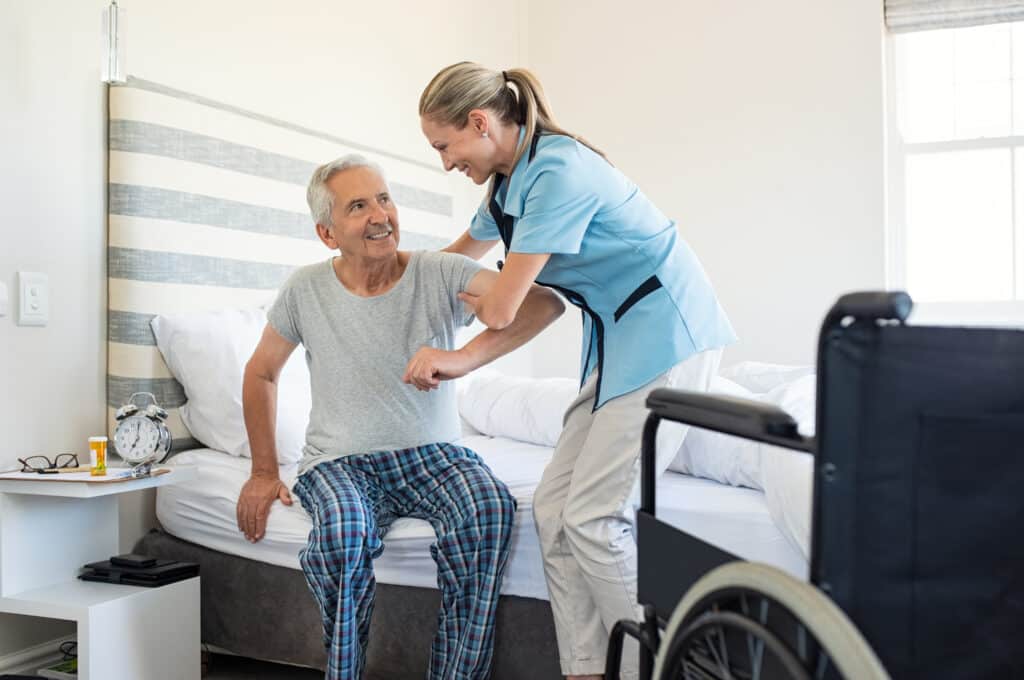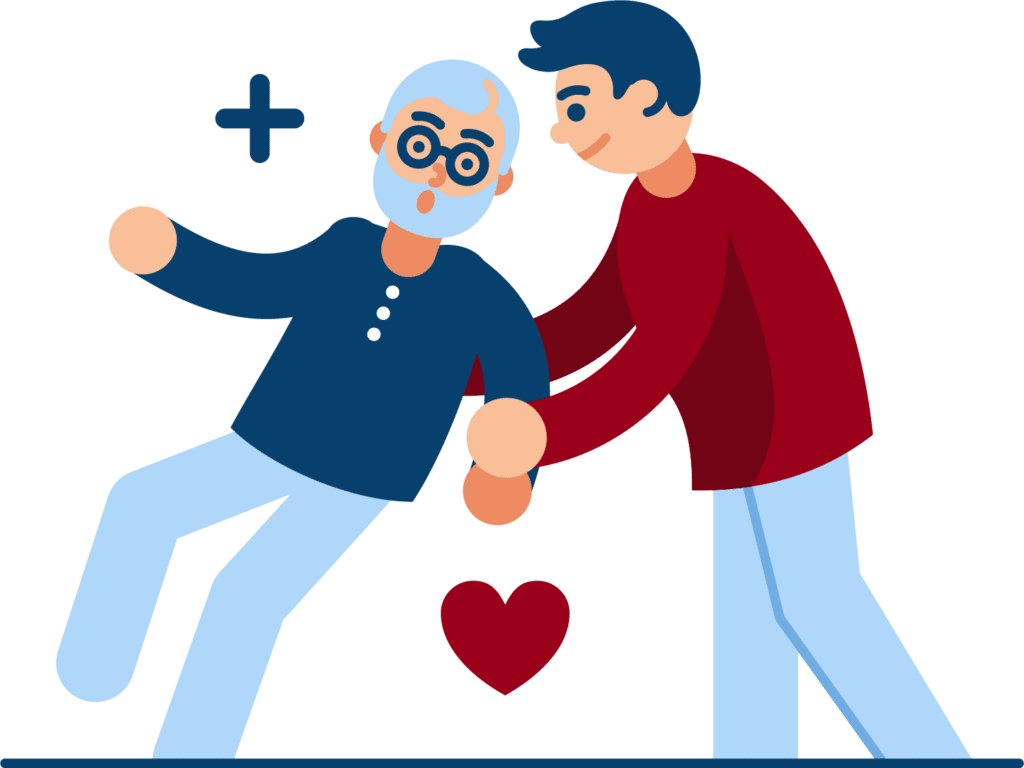PlatinumCare + provides top-notch home healthcare services to the residents of Boston, Massachusetts and its surrounding areas. From retired executives to industry giants, lawyers, doctors, politicos, or anyone in-between – all our clients are guaranteed exceptional service that is delivered with our unrivaled professionalism and confidentiality.
At PlatinumCare +, our passion and dedication are to bring loving, compassionate care into the homes of those most deserving. Our home health services provide not just healthcare support but real comfort when they need it the most – just like extended family offering love & comfort. We strive to embody that caring connection daily with every client we serve!
Falls are a common and serious problem for seniors, as they are a leading cause of injury and death among older adults.
According to the Centers for Disease Control and Prevention (CDC), falls are the leading cause of injury-related deaths among adults aged 65 and older, and they are also the most common cause of nonfatal injuries, such as fractures, among this age group.
There are many factors that can contribute to the risk of falls in seniors, including physical conditions, medications, and environmental hazards. However, there are also many steps that seniors and their caregivers can take to reduce the risk of falls and prevent injuries.
We go to great lengths to seek, select & train our caregivers so that they can in turn give the most caring & professional service to our clients.
Home care can be an effective way to help prevent falls in seniors, as caregivers can assist with tasks that may be difficult for seniors to do on their own, such as bathing and dressing, and can also provide supervision and support to help prevent falls.
There are several specific ways in which home care can help keep seniors from falling:
Assisting with activities of daily living: Care professionals can assist with tasks such as bathing, dressing, and using the bathroom, which can help reduce the risk of falls that may occur while completing these activities.
Providing supervision: At-home caregivers can provide supervision and support to help ensure that seniors are safe and are not engaging in activities that could increase their risk of falls.
Identifying and addressing fall risks: In-home caregivers can assess the senior’s home for fall hazards and take steps to address them, such as removing clutter, securing rugs, and improving lighting.
Encouraging physical activity: In-home caregivers can encourage seniors to participate in physical activities that can help improve their balance and coordination, such as walking or stretching.
Medication Reminders: At-home caregivers can assist with medication reminders for seniors to take their medications as prescribed and alerting healthcare providers if there are any concerns about the potential for medications to increase the risk of falls.
By providing assistance with daily tasks, supervision, and support, home care can be an effective way to help prevent falls in seniors and keep them safe.


One of the most important things seniors can do to reduce their fall risk is to stay physically active. Exercise can help seniors improve their balance, strength, and coordination, which can all help reduce the risk of falls. Some examples of exercises that can be beneficial for seniors include walking, yoga, and tai chi.
Seniors should also pay attention to their medications, as some medications can increase the risk of falls. For example, medications that cause dizziness or drowsiness can make it more difficult for seniors to maintain their balance, and medications that lower blood pressure can cause a senior to feel lightheaded or dizzy when standing up. It is important for seniors to discuss any concerns they have about their medications with their healthcare provider, as they may be able to suggest alternatives that do not carry the same risk of falls.
In addition to staying physically active and managing medications, there are also many environmental hazards that can increase the risk of falls for seniors. Some examples of these hazards include cluttered floors, rugs that are not securely anchored, and poor lighting.
Seniors can reduce their risk of falls by making sure their homes are well-lit, free of clutter, and have handrails and other safety features in place.
Another important aspect of fall risk management for seniors is having a plan in place in case a fall does occur. This can include having a device such as a fall alert bracelet or a medical alert system that can alert emergency services if a fall occurs. It can also include having a plan for getting help in case a fall occurs and the senior is unable to get up on their own.
Seniors should also be aware of their own risk of falls and take steps to prevent them. This can include wearing shoes with non-slip soles, using a cane or walker to help with balance, and avoiding activities that could increase the risk of falls, such as climbing ladders or standing on chairs.
In conclusion, falls are a serious problem for seniors, and they can have serious consequences, including injury and death. However, there are many steps that seniors and their caregivers can take to reduce the risk of falls, including staying physically active, managing medications, addressing environmental hazards, and having a plan in place in case a fall does occur. By taking these steps, seniors can help ensure their safety and reduce their risk of falls.
Home care can be an effective way to help prevent falls in seniors, as caregivers can assist with tasks that may be difficult for seniors to do on their own, such as bathing and dressing, and can also provide supervision and support to help prevent falls.
Feel better in the comfort of your own home. We specialize in care and daily living assistance to an array of individuals.
We understand that not one care plan fits all. We will take the time to get to know you and develop an individualized care plan.